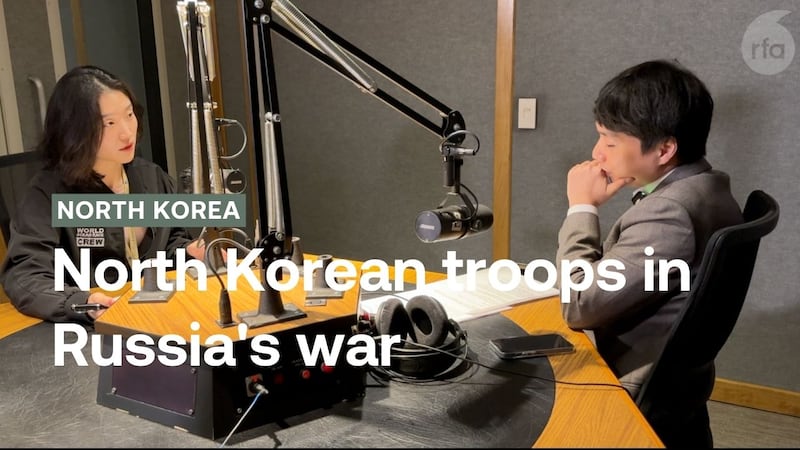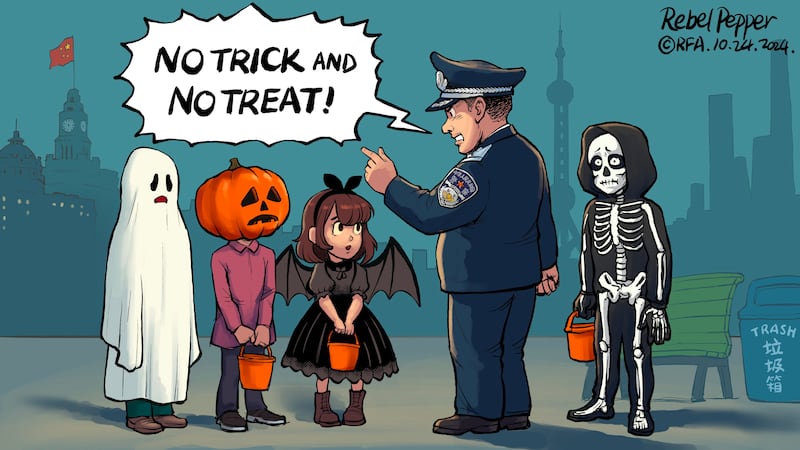Today’s special double length episode of RFA Insider gives into the panda-monium surrounding the arrival of the National Zoo’s new residents with an extra special audio documentary on China’s panda program.
The above audio file contains only the panda-related parts of this episode, because we needed to shorten it for awards submission. The full episode can be found here.
SPECIAL REPORT
Any Washington, D.C. residents who’ve happened by the national zoo this fall have seen the bold signs declaring that “THE PANDAS ARE COMING!” Eugene and Amy visited the zoo one late September afternoon and discovered that the signs had generated excitement, but also confusion. Why did the zoo’s previous panda trio – Mei Xiang, Tian Tian and son Xiao Qi Ji – have to go? Is China recalling its pandas due to worsening relations with the U.S.? How did pandas even come to D.C. in the first place? How do people in other countries perceive the panda program?
While Eugene and Amy may not be able to answer the most burning question (“When can we see the new pandas?”), they went Off Beat (by placing the segment within the documentary) with the John and Adrienne Mars director of the National Zoo, Brandie Smith, to discuss details of the zoo’s panda program, address common misconceptions and learn about panda care and conservation.
Podcast Free Asia
In the absence of episode corrections, Eugene and Amy briefly discuss a development in the Russia-Ukraine war, with help from the RFA Korean team. South Korea’s spy agency recently broke news that North Korea had deployed “large-scale” troops to support Russia’s war in Ukraine.

While North Korea had previously been suspected of supplying weaponry to Russia, sending troops marks a significant step into foreign conflict by the long-isolated North; Korean Service broadcasters Jaewoo Park and Hye Jun Seo explain how North Korean troops were identified in Russia and what this deployment may mean for the conflict.
The Rundown
Eugene kicks off The Rundown with a story about an uproar over milk. Chinese infant formula giant Feihe recently came under fire for signing a letter of intent to develop a formula product with Japan’s Kyowa Hakko Biochemical. The letter triggered outrage from “little pinks,” or nationalistic pro-CCP supporters, who accused the company of importing raw materials for the product from Japan.

Feihe denied the claims on social media, stating that it “shares the same patriotic sentiments as consumers.” Eugene added that oftentimes, stories about anti-Japanese sentiment in China lacked the necessary historical context: China and Japan fought two major wars against one another in the 20th century and ended up on opposite sides of the Cold War, background from which such attitudes and news stories are born from.
Also in China, Amy outlines a leaked police notice that reveals officials’ intent to shut down Halloween celebrations in the Huangpu district of Shanghai. According to the notice, all costumes and Halloween make up are banned, as are Halloween decorations.

Even Halloween-related terms and English words banned from businesses’ promotion material, both online and offline. The crackdown comes after last year’s Halloween festivities in Shanghai, where some revelers donned COVID-19 enforcer hazmat suits and Winnie-the-Pooh costumes in a continued show of defiance of the state following the White Paper protests in that year.
